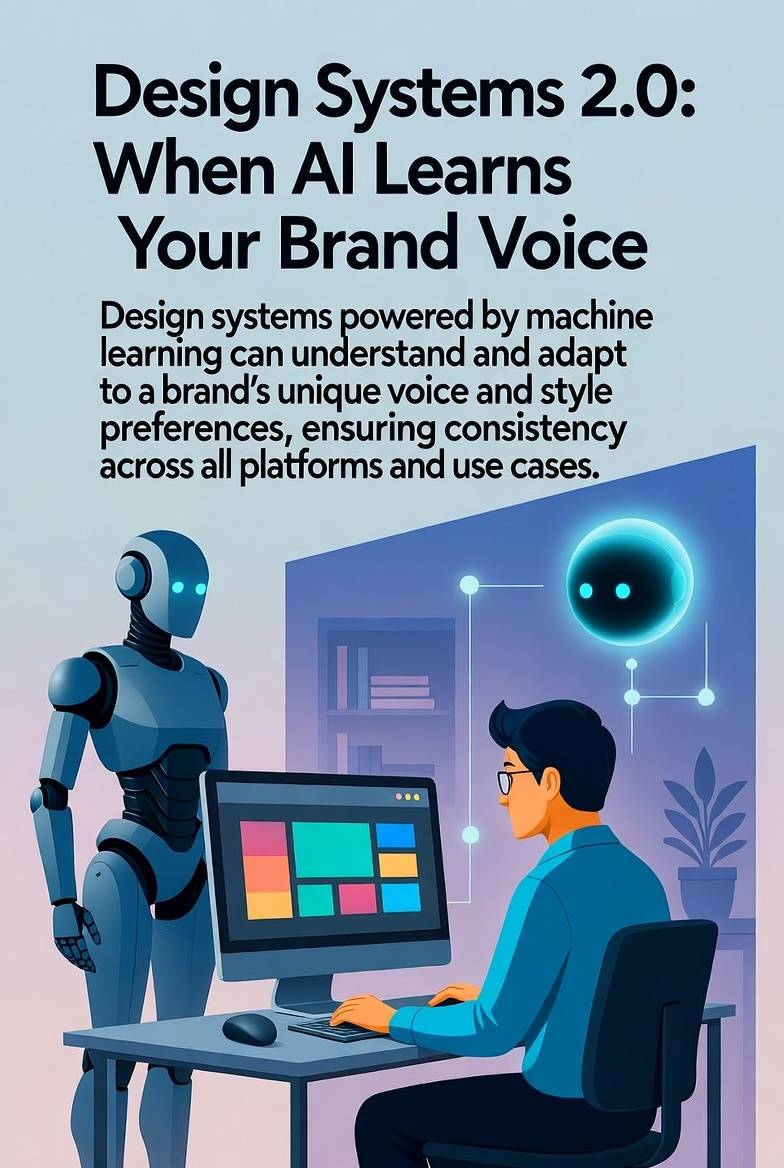From No-Code to Co-Code: AI’s Impact on Development Speed and Creativity
By Spenser Robinson - November 23, 2025

For decades, the world of web development has been on a relentless quest for speed and efficiency. From the early days of manual HTML coding to the rise of frameworks and libraries that streamlined the process, the goal has always been to build better, faster, and more reliable applications. This journey led us to the no-code revolution, a paradigm that promised to democratize development by allowing anyone to create applications without writing a single line of code. But as we stand in the year 2026, it is clear that the future is not “no-code,” but “co-code”—a new era of collaboration where human developers and artificial intelligence work in partnership to push the boundaries of creativity and innovation.
The co-code paradigm is not about replacing developers with machines. It is about augmenting their abilities, freeing them from the drudgery of repetitive tasks, and empowering them to focus on what they do best: strategic thinking, creative problem-solving, and building beautiful and intuitive user experiences. In this new world, AI is not just a tool; it is a collaborator, a creative partner that can generate code on command, predict bugs before they happen, and even suggest novel approaches to complex problems.
This article explores the profound impact of AI on the world of web development, from the evolution of no-code platforms to the rise of co-code systems. We will delve into how AI is eliminating repetitive coding tasks, how it is being used to generate code snippets and even entire applications, and how it is helping developers to build more reliable and secure software. We will also examine the ongoing debate about the impact of AI on development speed and quality, and we will look to the future of co-coding, a future where the lines between human and machine creativity are becoming increasingly blurred.
The Evolution from No-Code to Co-Code
The no-code movement was born out of a desire to make web development more accessible to a wider audience. Platforms like Bubble and Webflow empowered entrepreneurs, designers, and small business owners to create their own websites and applications without having to learn how to code. This was a significant step forward, but it also had its limitations. No-code platforms are often rigid and inflexible, making it difficult to create custom functionality or to integrate with other systems.
The co-code paradigm represents the next logical step in this evolution. Instead of trying to eliminate code altogether, co-code platforms embrace it, using AI to make the coding process faster, easier, and more creative. These platforms, which include tools like GitHub Copilot, Tabnine, and various agentic IDEs, act as intelligent assistants, providing developers with real-time code suggestions, autocompleting repetitive code blocks, and even generating entire functions from natural language prompts.
This new approach to development is not just about speed; it is also about creativity. By automating the more mundane aspects of coding, co-code platforms free up developers to focus on the more creative aspects of their work. They can spend more time thinking about the user experience, experimenting with new ideas, and pushing the boundaries of what is possible with technology.
The AI-Powered Developer's Toolkit
The co-code revolution is being driven by a new generation of AI-powered tools that are transforming every aspect of the development workflow. These tools can be broadly categorized into three main areas: code generation, bug prediction, and automated testing.
Code Generation: AI-powered code generation tools are perhaps the most well-known and widely used of the new breed of co-coding tools. These tools, which are often integrated directly into the developer's IDE, can generate code snippets, functions, and even entire applications from natural language prompts. For example, a developer could ask an AI to generate a Python function that takes a list of numbers and returns the average, and the AI would instantly produce the corresponding code. This not only saves a significant amount of time and effort but also helps to reduce the number of syntax errors and other common coding mistakes.
Bug Prediction: Another exciting area of AI-powered co-coding is bug prediction. These tools use machine learning to analyze a codebase and to identify potential bugs before they are even written. For example, an AI could be trained to recognize common coding patterns that are known to lead to security vulnerabilities, and it could then flag these patterns as they are being written. This can help to significantly improve the quality and security of the code, and it can save developers a great deal of time and effort in the long run.
Automated Testing: AI is also being used to automate the process of testing. AI-powered testing tools can be used to automatically generate test cases, to run tests across a wide range of devices and browsers, and to identify and flag any potential issues. This can help to ensure that applications are fully functional and responsive, and it can free up developers to focus on more creative and strategic work.
The Speed vs. Quality Debate
While the benefits of co-coding are clear, there is an ongoing debate about the impact of AI on development speed and quality. Some studies have shown that AI-powered tools can significantly increase development speed, with some developers reporting a perceived increase of up to 24%. However, other studies have shown that AI can actually slow down the development process, with one study finding that developers took 19% longer to complete tasks when using AI tools.
The reason for this discrepancy is complex and multifaceted. On the one hand, AI can certainly speed up the process of writing code. However, it can also introduce new challenges. For example, developers may spend more time reviewing and debugging AI-generated code, and they may be less likely to fully understand the code that they are writing. This can lead to a decrease in code quality and an increase in the number of bugs.
Ultimately, the impact of AI on development speed and quality will depend on a variety of factors, including the specific tools being used, the skills and experience of the developer, and the nature of the project. However, it is clear that AI is not a silver bullet. It is a powerful tool, but it is not a substitute for human expertise and judgment.
The Future of Co-Coding
The co-code paradigm is still in its early stages, but the potential for human-AI collaboration in web development is vast. As AI technology continues to evolve, we can expect to see even more sophisticated and intelligent tools that will further augment the capabilities of developers. In the future, we may see AI systems that can not only generate code but also reason about it, providing developers with high-level strategic advice and helping them to make better design decisions.
The future of web development is a collaborative one, where humans and machines work together to create a new generation of intelligent and intuitive applications. In this new world, the role of the developer will be not just to write code but to orchestrate a team of AI-powered assistants, to guide their creativity, and to ensure that the final product is not just functional but also beautiful, engaging, and human-centric. The co-code revolution is here, and it is changing the way we build the digital world.
References
1.monday.com. (2025, October 27). AI tools for developers: 12 essential solutions for 2026. monday.com. https://monday.com/blog/rnd/ai-tools-for-developers/
2.Builder.io. (2025, October 30). The best agentic IDEs heading into 2026. Builder.io. https://www.builder.io/blog/agentic-ide

About the author
Spenser Robinson
Professional UX Designer, Entrepreneur and overall creative. Spenser has been dedicated to sharing stories from our community and creating opportunities for others through various mediums. Founder of Black Business Mine Publishing House, a company that creates content distinctly for OUR community, while offering business consulting, and comprehensive web design and development services.
MILLIONAIRE WEB SERVICES | BOOK FREE WEBSITE CONSULTATION | HIRE ME AS YOUR DEVELOPER
STACKS & STORIES | DIGITAL CRAFT DIGEST | PLAY 2 WIN DA GAME SPORTS



